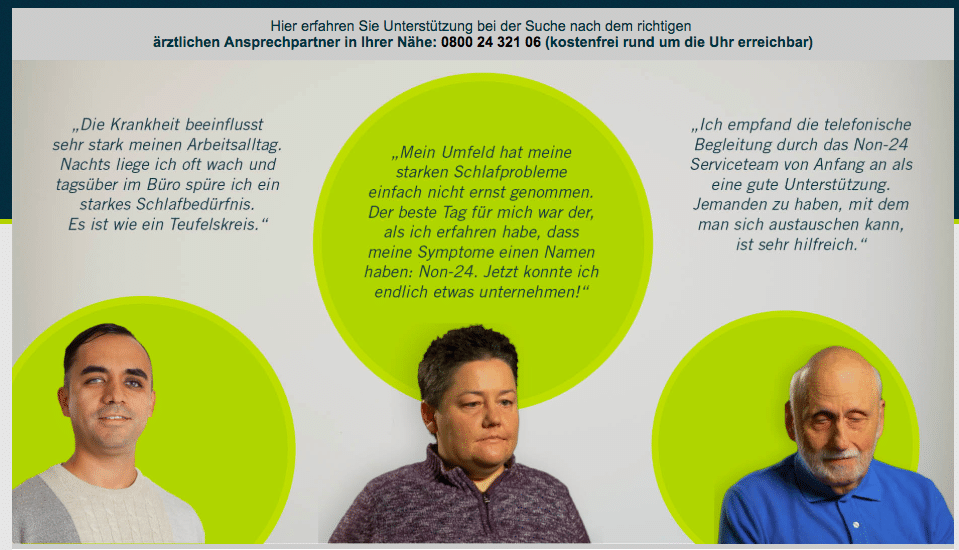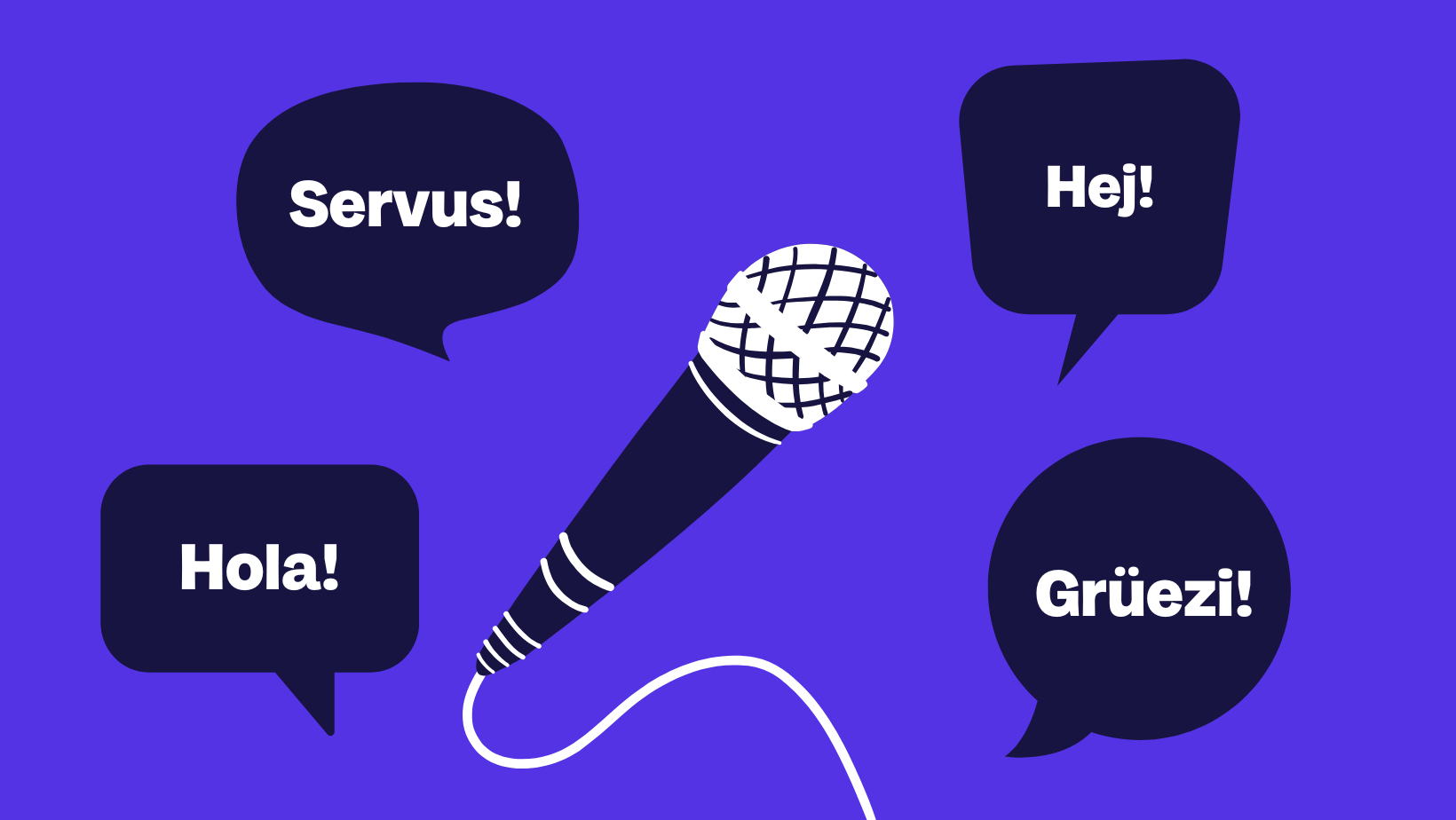Get well soon? Storytelling in the pharmaceutical Industry
When you think of the pharmaceutical industry, scandals, unpleasant clinical pictures, dry facts and of course risks and side effects tend to come to mind. The area offers the perfect breeding ground for good storytelling. At its core, it is always about one thing: people’s health. It would be hard to find a more emotional hook.
From bitter pills to real stories: How pharmaceutical companies can score points with storytelling
“Is there also something from Ratiopharm?” Unfortunately not. Up to now, storytelling has been treated rather neglected in the industry, especially in Germany. Even the biggest companies rarely tell more than memorable slogans in their campaigns. We think this is a shame and show what storytelling can achieve in the pharmaceutical sector and which companies are setting a good example.
The sector operates in a very sensitive environment between the research-based pharmaceutical industry, patients and doctors. Objectively, the treatment of diseases with highly scientific means and medicines based on complex research is the focus of the work.
People instead of diseases: Telling real stories
On an emotional level, however, it is always about people and their well-being. This should therefore also be the focus of communication with the target groups. It’s not about the disease. It is about the person affected who is cured through therapy with the right preparations. Or at least regain a great deal of quality of life.
This, in turn, is not only exciting for the patients. Communicating through stories also helps when working with doctors who are very busy. Instead of presenting purely anonymous case studies, modes of action and statistics, they too can be addressed with real cases, names and faces. The benefits of the therapy for your own patients can be seen at a glance.
A good example is the “Strong Women” campaign for the herbal remedy Sedariston, which is based on St. John’s wort and valerian and is said to provide “inner strength”. Aristo Pharma prominently presents the stories of women who have successfully overcome periods of stress in their lives. Be it through overwork, depression or sudden illness. The protagonists from all over Germany are allowed to tell their personal heroic story. This creates real identification potential for the target group.
Social phenomena as a hook: Growing old with Phizer
But it doesn’t always have to be about individual clinical pictures. As the American pharmaceutical giant Phizer (itself the inventor of the sexual enhancer Viagra) shows on its specially created content page Getold.com, pharmaceutical companies can also take on social challenges. In this way, they position themselves as mentors for entire generations. Or have you ever thought about all the things that come with getting old? Phizer has something for us! Be it for a healthy heart or simply for a little inspiration. The company strengthens brand loyalty with beautifully presented stories, guides and inspiring quotes, even beyond ailments and illnesses. And it is already looking after the customers of tomorrow.
Complex research explained in an understandable way: storytelling as a knowledge mediator
The pharmaceutical industry is not just about very sensitive and sometimes private issues. Much of the content is simply difficult for laypeople to understand. Storytelling can therefore also be an opportunity to make complex content understandable for target groups. Why only ever talk in medical and sterile terms about how drugs work? Instead, you can use simple stories, comparisons or graphics to make the advantage comprehensible for everyone.
Content marketing is the perfect basis for clearly structuring and preparing the mass of possible topics. Bayer provides a good example with its official online magazine. In addition to general health advice, you will also find personal stories about Bayer employees and insights into various specialist areas, such as cancer research. All content is always related to people and presented in an understandable way. In this way, they make the anonymous large corporation more approachable.

Education as an opportunity: creating awareness for rare diseases with storytelling
Another huge opportunity for storytelling in the pharmaceutical industry is to raise awareness of little-known or underestimated diseases. There are still a number of rare diseases that receive little or no attention in society. Those affected have a difficult time on several levels. On the one hand, they often go through decades of suffering before a doctor correctly interprets the symptoms and initiates successful treatment with a diagnosis. On the other hand, they and their health problems are often not taken seriously by other people as long as they cannot attribute the complaints to an existing illness. The pharmaceutical industry has the task of providing information about these so-called orphan diseases. Good stories give them a helping hand.
The campaign by the Berlin agency 2strom is an exciting example. She has taken on the task of publicizing the disease Non-24 for the American pharmaceutical company Vanda Pharmaceuticals. Also known as non-24-hour sleep-wake syndrome, it is a rhythm disorder in which the internal clock is not synchronized with the 24-hour day. While the disease occurs relatively rarely in sighted people, as daylight generally sets the pace of the biological clock, around 50 percent of blind people are affected by the disorder. The crux of the matter: before the campaign was launched, neither the patients nor the doctors knew anything about Non-24. The agency therefore presented patient stories from a clinical study as the focus of the awareness campaign for the product launch of the first remedy. This creates points of contact for both target groups.

Heroes within our own ranks: storytelling for employer branding
As the industry has to contend with many prejudices, for many people a career in the pharmaceutical sector is out of the question for moral reasons. Pharmaceutical companies must therefore naturally also strengthen brand loyalty with existing and potential employees through active employer branding. This is the only way to attract qualified team members.
The Merck Group provides a good example of this with its careers page. Under the motto “Our curiosity drives us”, they put the Group’s work in a new context and appeal to talent at all levels. The company tells its story in video format with an emotional world of images and beautiful comparisons, showing the broad spectrum of its research.
Value communication and humor as pillars of pharmaceutical storytelling
Good communication of values is also essential for employer branding in a sector as sensitive as the pharmaceutical industry. This creates potential for identification between the company and (potential) employees. A good example of this is provided by the good healthcare group, which gives its values their own section of its website.
Storytelling opens up numerous opportunities for pharmaceutical communication to reach its target groups better and more sustainably. This is not limited to addressing patients. Even doctors and pharmacists no longer want to be addressed by mere facts in their stressful everyday lives. Human stories instead of case files manage to involve the health experts. This is particularly important in the area of information about complicated and rare diseases in order to increase the diagnosis rate and help those affected.
Last but not least, we don’t want to deprive you of the fact that pharmaceutical communication doesn’t always have to be about human destinies and serious topics. It’s okay to smile sometimes, as the commercial for Vomex proves.
Share this article









